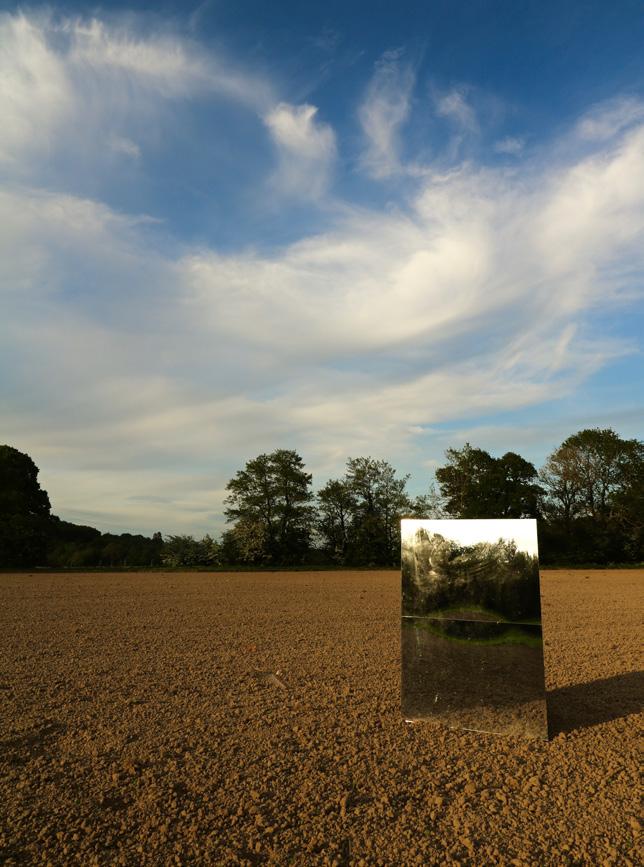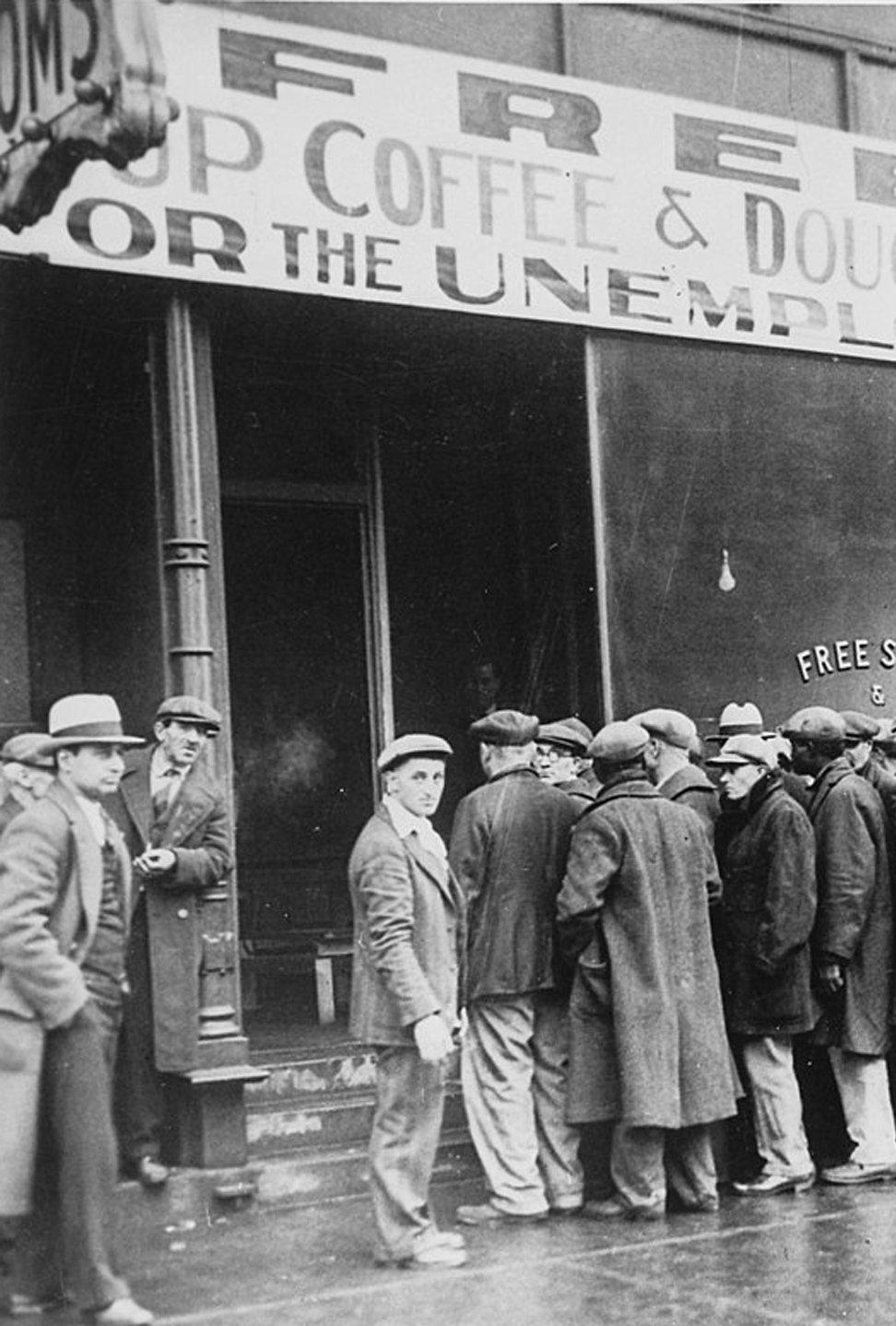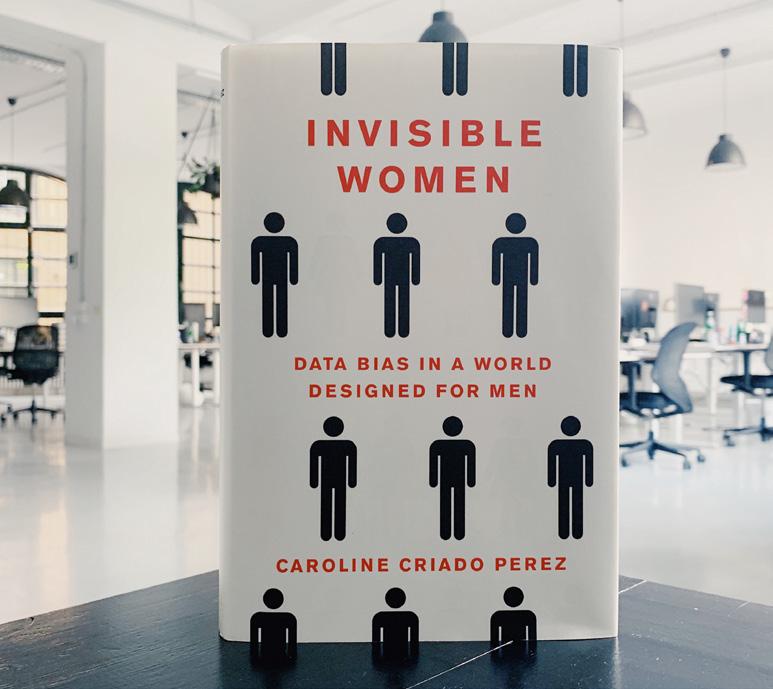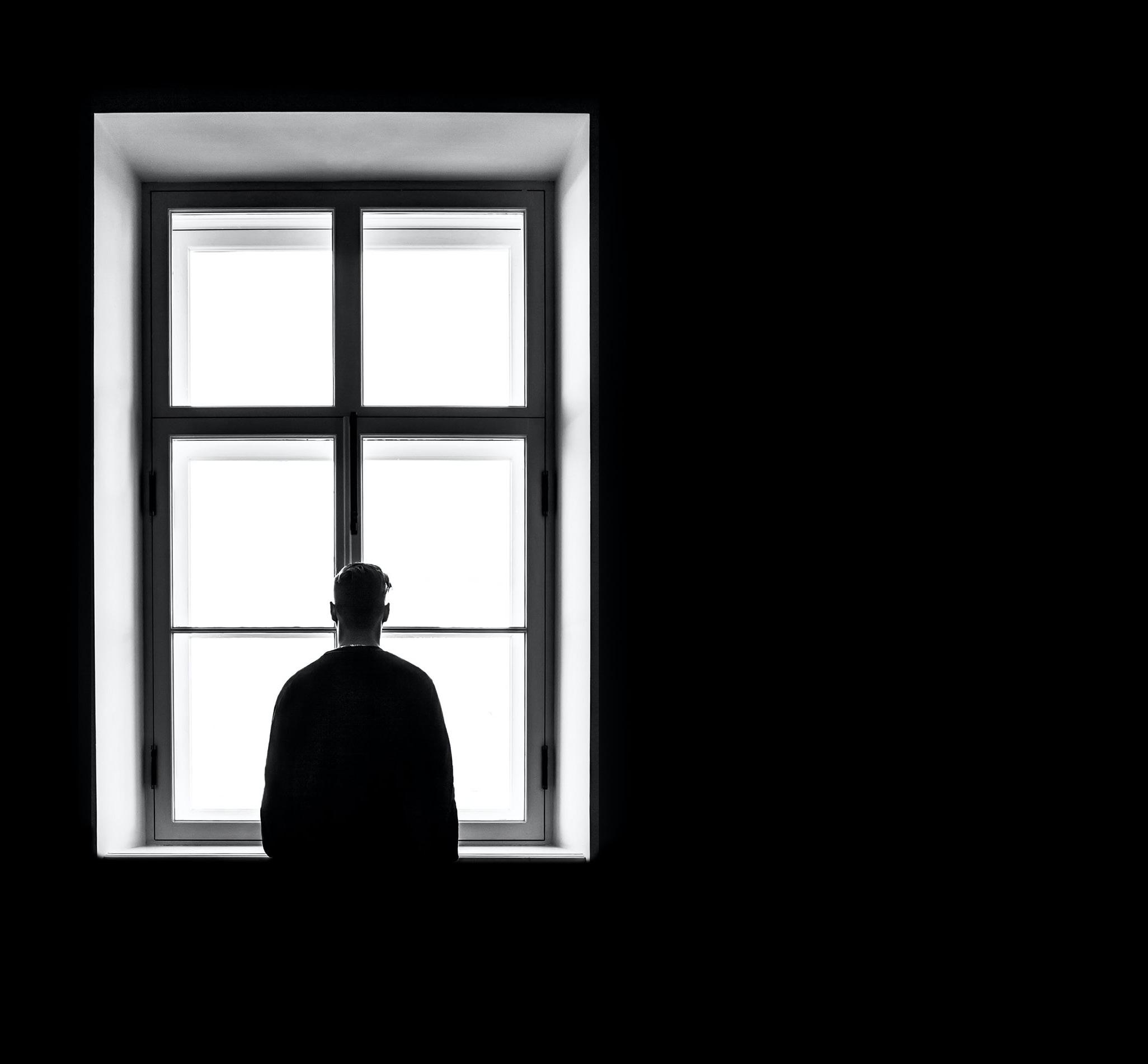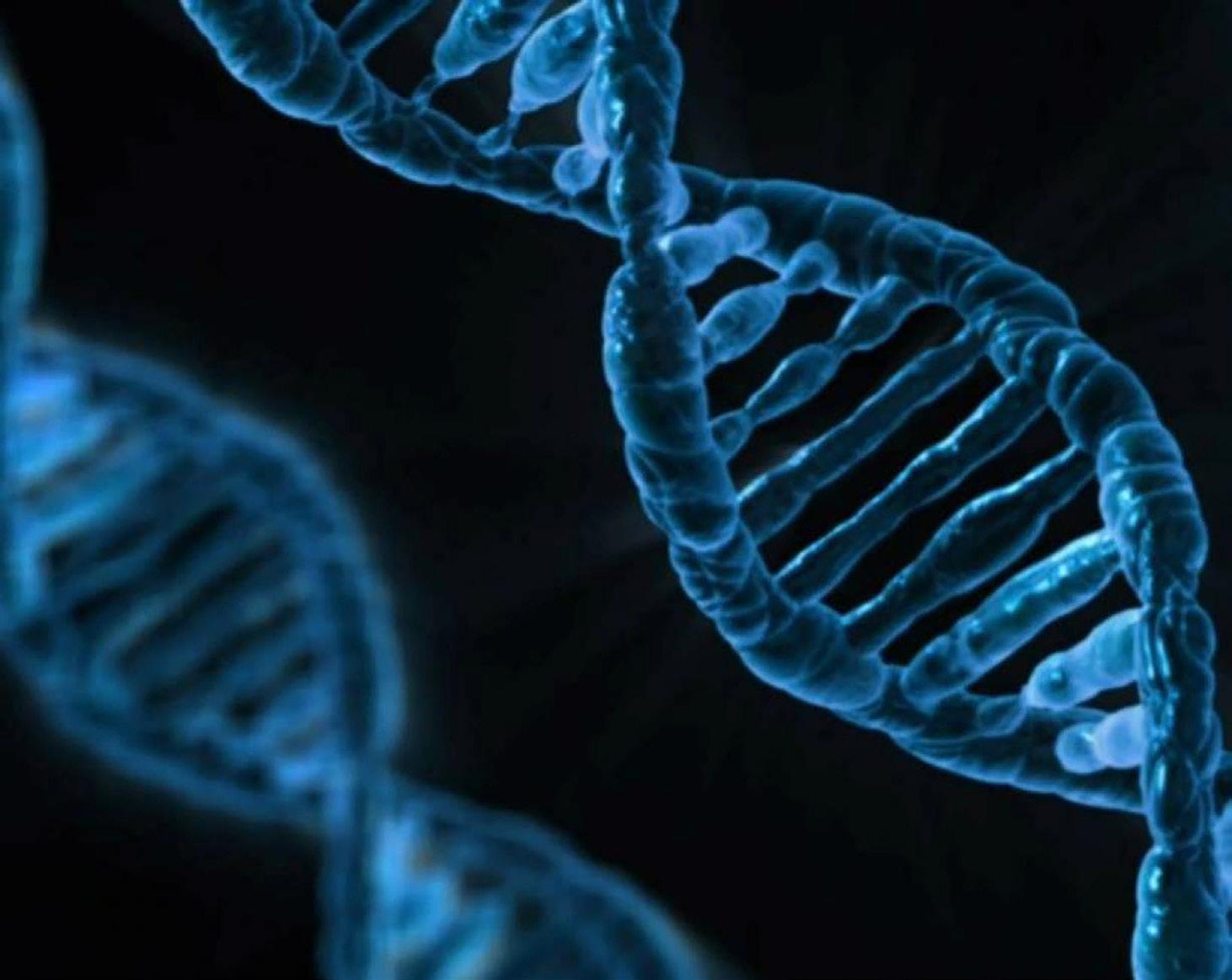
8 minute read
When Reality Mirrors TV Nicholas Lemieux
Nicholas Lemieux YEAR 12
For most people, TV serves as a much-needed break from the stress of reality. Sometimes at the end of a rough day of work, we just want to sit down, relax and switch our brains off for an hour or so as we engage ourselves in a fictional world filled with characters and storylines that just strain credulity. We find entertainment in these shows as we know these manic and bizarre situations surely can’t happen in the real world. Sure, there’s a relatable aspect always there, but for the most part these larger-than-life characters and the wacky problems they find themselves in are just too silly to actually happen for real...
... Right?
A TV writer’s main goal is, of course, to entertain their audience. Whether creating a reflection of the real world or an entirely different fantasy setting, they do not set out to achieve a complete replica of reality, much less predict what could happen in the future. Yet all too often, in an almost Nostradamus-like manner, these writers hit the nail right on the head by forecasting accurate outcomes in the real world. Life somehow imitates art and people, things, and stories meant to be entirely fictional somehow find their way into our reality. You could even make the case that most of the futuristic technology of Star Trek, like video calls and cell phones, are now just everyday parts of our society, demonstrating how much the times have changed since then and perhaps offering up some commentary on our own technological evolution. As a result, this can cause various one-off jokes and storylines to become either hilarious or harsher in hindsight, depending on your own perspective of things. Whether it’s some eerie coincidence or a genuine reflection of a still-possible dystopian society, it’s still a testament to the creativity and skills of these writers for accurately prophesising the world of tomorrow. Perhaps some of the most notable cases of TV accurately predicting the future come from the eternally upbeat and optimistic anthology show Black Mirror. The main intention of the sobering sci-fi series is to starkly remind us of our over-reliance on technology, how it easily has the power to cause us great harm; furthermore, it offers a look at the world around us to see where we may be catastrophically heading. Right off the bat, however, the show’s very first episode eventually turned out to have a truly shocking reality behind it. Aired back in 2011, “The National Anthem” follows a fictional British Prime Minister who, in order to save a member of the Royal Family from kidnappers, is forced to have sex with a pig on live TV. At the time of its broadcast, many regarded the episode as nothing more than a simple piece of clever commentary upon the constantly changing 24-hour news cycle as well as society’s general obsession with scandals and the humiliation of others. Four years later, however, the media frenzy of “Piggate” broke out after rumours broke out that then-PM David Cameron had committed sexual acts of sorts with a dead pig during his university years which quickly made headline news. Of course, there was never any proper evidence that the claim was true and series creator Charlie Brooker did have to quickly deny any prior knowledge of these accusations, calling it a “complete coincidence”. At bare minimum, however, the show did at least offer up an accurate prediction of what the public frenzy about such a specifically grotesque story would like, as is evident from the sheer humiliation Cameron faced worldwide.
Similarly, some of the technological innovations put forth by Black Mirror, in its intentions to highlight the unanticipated consequences of new technologies, have scarily started to seep their way into reality as well. For instance, the episode “Nosedive” is set in a world where people can rate one another from one to five stars for every social interaction they have, which has an overall impact on their own standing in society as a whole. As a result, many of the relationships within this world turn out to be wholly insincere and the main character herself ultimately ends up losing her sanity in her pursuit of more likes and a consequent improvement in social status. Even marriages are shown to be out of mere convenience just to boost one’s own raring. Initially just a clever thought-provoking concept, this episode in particular has received much media attention after news broke out in 2016 that the Chinese government was legitimately toying with plans to implement a “social credit” system for their citizens. The initiative, which was planned for testing this year, would involve assigning each citizen a score determining decisions such as "whether you can borrow money" or "get your children into the best schools", and that actions such as "defaulting on a loan"
or "criticizing the ruling party" would lead to a lower score. The proposed system is startlingly similar to the rating concept of Black Mirror, particularly how the idea of stripping a citizen of their rights based off of their low rating directly mirrors the unfortunate fate of the main character in “Nosedive”. As Frank Pasquale, a big-data expert at the University of Maryland put it, "You could imagine a future where people are watching to see if their friends’ credit is dropping and then dropping their friends if that affects them. That’s just terrifying."
Sometimes you get a show that’s just been going on for so long that it’s inevitable at least some of its future predictions are bound to be right. The never-ending zombie of a show that is The Simpsons of course is the key example of this trope (Season 32 coming this autumn!). Over the course of the three decades it’s been on the air, numerous one-off jokes and sight gags have unexpectedly ended up predicting various events in the future. Notable occurrences of this include the accurate prediction of the Higgs-Boson particle (unexpectedly from a smart Homer), Disney’s buying out of 20th Century Fox, the existence of threeeyed fish mutated by a nuclear power plant, smart watches, autocorrect and the use of horsemeat in products which later resulted in the horsemeat scandal with Iceland. Probably the most memorable of these incidents was the time the show somehow correctly predicted the outcome of the 2016 presidential election 16 years prior. The episode “Bart to the Future” from Season 11, set in a world where Lisa has become President, features a one-off joke alluding to Donald Trump, back then just a mere millionaire, becoming President and causing a budget crisis that Lisa inherits. At the time of the episode’s writing, the joke was initially inserted in order to tie in with the episode’s overall theme of America going insane in the future, which makes its accidental prediction of this unexpected event all the more surreal. In fitting Simpsons style, the first episode aired after the results of the 2016 election included a gag in the opening credits commenting on how “being right sucks”. I will point out however that the recent reports of the show apparently predicting the outbreak of Coronavirus back in 1993, with a joke involving a global pandemic spreading worldwide from an infected Japanese factory in Osaka, did turn out to be partially false as the virus originally started from Wuhan-more than 2000 km away from Osaka. Ah well, you can’t win them all I suppose.
Even in the world of live-action sitcoms, throwaway jokes and intentionally silly storylines somehow turn out to be oddly prophetic of future real-life events. Arrested Development, a particular favourite of mine, has become notable for featuring many jokes that are actually strongly rooted in reality. The Bluths themselves, the wealthy yet dysfunctional family of the show, have undergone comparisons to the Trumps, and to be fair some of the similarities are quite apt (a failing real estate business, a family obsessed with drawing attention to themselves, buffoonish patriarchs etc.). These comparisons particularly took off after a storyline in the show’s revival season in 2013 ended up suspiciously similar to our current political landscape. George
Sr., the patriarch, lands a government contract to build a wall on the US-Mexico border. Two years before Trump had even announced his campaign, Arrested Development had accurately predicted the Wall. In another example of reality mystically imitating a sitcom, the medical comedy Scrubs somehow managed to predict the whereabouts of Osama Bin Laden five years before his death. In a conversation about the Iraq War, the janitor of the show, a character who seemingly always exaggerates his knowledge and backstory to ludicrous degrees, offhandedly mentions he believes Bin Laden to be hiding in Pakistan. In 2006, his guess was as good as anybody’s yet bizarrely it was indeed in a Pakistani compound where Bin Laden was ultimately found and killed. I guess being a janitor he already knew where to find all the bins (joke stolen from a YouTube comment).
Lastly, the final season of workplace sitcom Parks and Recreation, which was filmed in 2014 but had a time jump three years into the future in 2017, featured a number of oddly correct predictions of what would’ve happened by then. This included the Chicago Cubs winning the World Series despite their constant losing streak, the poor reviews for the last season of Game of Thrones and the idea of a Star Wars film being used by the government to distract the public from a big vote, as later happened with the release of The Last Jedi at the same time as the FCC’s attempt to remove Net Neutrality.
Overall, I guess the point I’m trying to make is life can be very weird sometimes and no matter how much we try to predict it, we’ll never truly know what happens in the future. Still, the writers for these shows have done a fantastic job of reading in between cultural lines and figuring out where we may be possibly heading, no matter how surreal it seems. Points off for Back to the Future Part II though. 2015 came and went and I STILL have no hoverboard.


